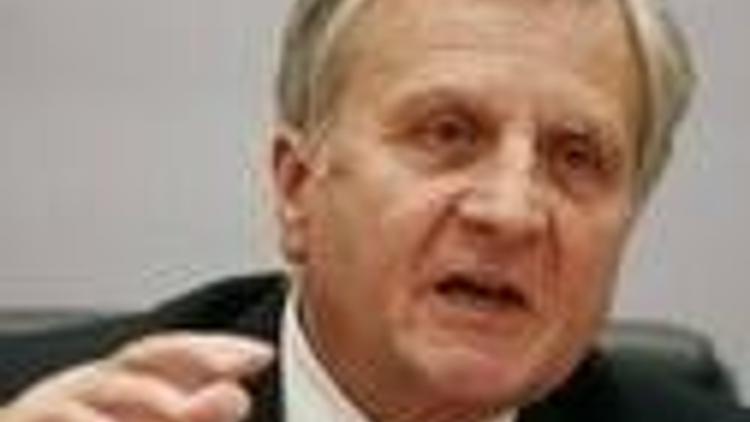ECB, Bank of England leave rates steady
Güncelleme Tarihi:

The European Central Bank and the Bank of England both held their official interest rates steady on Thursday as rising inflation outweighed concerns about slowing economic growth across the European Union.
But the two banks are expected to take different paths next month when the ECB is likely to again keep its borrowing rate at 4 percent to fight inflation, while many economists expect the British central bank to cut its own rate by a quarter percentage point from the current 5 percent.
Soaring food and energy prices have made the European banks reluctant to follow the U.S. Federal Reserve in cutting interest rates to shore up consumer confidence and economic growth. Interest rate cuts, while stimulating the economy, can also worsen inflation as they encourage consumer spending.
"As we have said on previous occasions, inflation rates are expected to remain high for a rather protracted period of time, before gradually declining again," ECB president Jean-Claude Trichet told reporters in Athens.
Inflation in the 15-nation euro zone rose to a record high of 3.6 percent earlier this year, before easing slightly in April to 3.3 percent. That is still well ahead of the ECB's 2 percent ceiling.
"We were unanimous in deciding to leave rates as they are," Trichet told a news conference. "There was absolutely no call for any thing other than (that) decision."
Most economists expect the ECB to cut rates in the second half of this year to bring rates down to 3.5 percent by December, but many now expect the bank to stay its hand until at least September.
The bank also pointedly left out the term "vigilance" in its statement on its decision, a word the bank has used in the past to hint at higher interest rates, after a pair of ECB governors said last month that high inflation could cause the bank to raise interest rates.
The euro reached a record $1.6018 on April 23 after the governors' statement. They quickly backed off the assertion and the euro has since slid, to around $1.54 on Thursday.
Trichet said the term hadn't disappeared from the ECB's vocabulary, and could be used when necessary.
"I have absolutely no reason to say that vigilance has disappeared from our potential vocabulary. It is an expression we can certainly utilize when we judge it is time to utilize it."
While the U.S. Federal Reserve has lowered rates seven times in as many months to 2 percent, the ECB has been content to stand pat to try to combat rising inflation in the bloc of 317 million people, which accounts for 22 percent of global gross domestic product, behind the U.S. at 27 percent.
"While the U.S. economy has succumbed to stagnation and the U.K. economy is decelerating sharply, the euro zone has so far held up fairly well," said Holger Schmieding, Bank of America's chief European economist. "For the time being, that is until the summer break ends in September, the ECB is probably firmly on hold," he said.
In London, the Bank of England shied away from back-to-back trims despite slowing economic growth.
The British bank does not issue a statement when it leaves rates unchanged, but the decision was anticipated by most analysts after the bank's monetary policy committee made a quarter of a percentage-point cut last month.
But unlike the ECB, most economists expect the Bank of England to cut rates to 4.75 percent next month despite domestic inflation running at 2.5 percent, well ahead of the government's 2 percent target.
"Most MPC members probably currently favor maintaining a policy of gradually but steadily trimming of interest
Photo: AP

